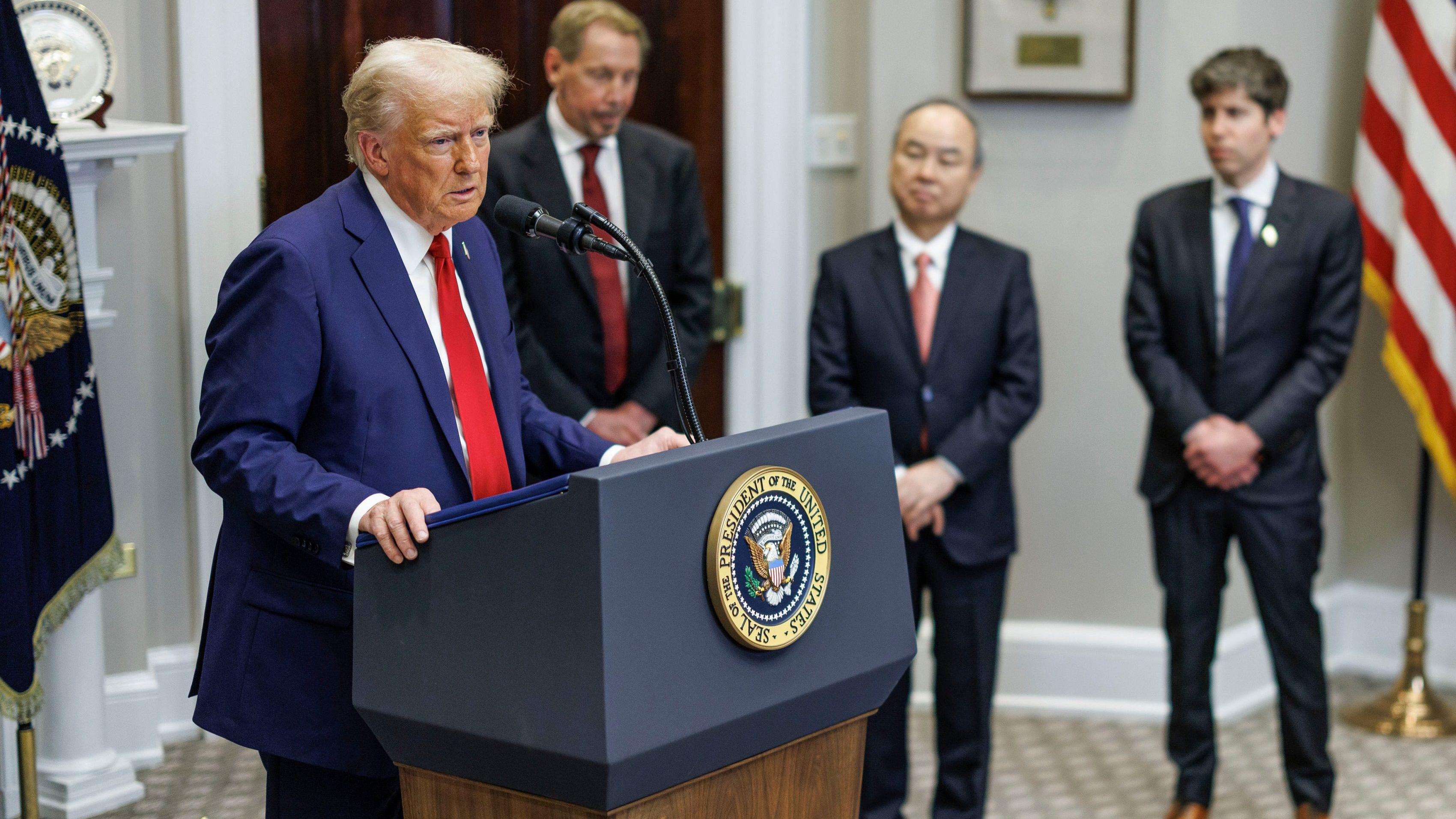Oracle, SoftBank, and our new back to back President Donald Trump have announced Project Stargate, a $500 billion private initiative to build the world’s largest AI data centers in the U.S. The project, funded by SoftBank and investors, aims to supercharge AI development, with Trump leveraging executive orders to secure energy resources. Proponents like OpenAI’s Sam Altman and Oracle’s Larry Ellison claim it will revolutionize personalized medicine, including AI-designed mRNA vaccines to “cure cancer,” while creating 100,000 jobs—though critics warn those jobs may vanish once AI takes over.
Elon Musk, excluded from the deal, called the project “fake,” accusing SoftBank of lacking secured funds. Altman countered by inviting Musk to visit ongoing construction sites in Texas, where 10 facilities are already underway. Meanwhile, Ellison’s vision of AI-monitored societies—where “everything is recorded”—fuels fears of dystopian surveillance. The project’s name nods to a 1970s CIA psychic warfare program, sparking theories about hidden agendas.
The timing coincides with OpenAI’s pivot to for-profit models, contradicting Altman’s 2023 congressional testimony. Conspiracy jokes abound, linking Silicon Valley’s “PayPal Mafia” to reptilian overlords and Musk’s viral “Roman salute” as a nod to a new tech dynasty. While Project Stargate could democratize AI, its scale and secrecy leave many wary of who truly controls the future.
The project’s staggering energy demands have raised eyebrows, with critics questioning how the U.S. grid will sustain such infrastructure. Trump’s role in fast-tracking power allocation through executive orders bypasses traditional regulatory hurdles, drawing accusations of favoritism toward tech giants. Meanwhile, environmental groups warn that diverting energy resources to fuel data centers—many of which will rely on fossil fuels—could undermine climate goals. Proponents counter that Stargate will eventually transition to renewable energy, but skeptics argue the timeline is vague and risks locking in carbon-intensive practices for decades.
Beyond the tech feud, Project Stargate has reignited debates about AI’s role in governance. Ellison’s push for AI-driven societal monitoring aligns with global trends toward digital authoritarianism, where governments partner with corporations to enforce compliance. Legal experts highlight the lack of oversight frameworks for such projects, fearing unchecked power in private hands. As construction accelerates in states like Texas, local communities brace for upheaval—land seizures, rising energy costs, and transient job booms that may leave little long-term benefit. The project’s scale echoes historical megaprojects like the Manhattan Program, but with stakes far more ambiguous: Is this the dawn of AI utopia or a corporate coup masked as progress?
10 Breakthrough Features of Google’s Willow Quantum Chip: A New Era in Computing
Google’s Willow Quantum Chip represents a monumental leap in quantum computing, combining hybrid architecture, enhanced error correction, and scalable qubit design. This article explores its groundbreaking features, potential applications, and how it could redefine industries like AI, cryptography, and climate modeling.
How to install React in Various Ways
many various way to effectively using a react
